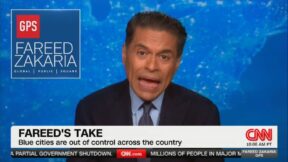Facebook Blocks News Posting, Sharing in Australia Ahead of Media Bargaining Law

Photo credit: Loic Venance, Getty Images
Facebook has announced that it will no longer allow news from Australian publishers to be shared on its site, and users in Australia will be blocked from sharing or viewing Australian and international news content.
The action by the digital giant is a response to Australia’s proposed Media Bargaining law, described by one Australian lawmaker as a way to “protect public interest journalism in Australia,” which would require Facebook and Google to pay news publishers for content.
Facebook’s new restrictions mean that Australian news publishers will not be able to share or post content on Facebook, and news from non-Australian sources cannot be viewed or shared by Australian audiences. Australian users cannot view or share Australian or international news content, or content from Australian and international news pages, and non-Australian users will not be able to see or share Australian news content.
Facebook’s announcement comes on the heels of news that Australia-based News Corp. struck a multi-year deal with Google, in which News Corp. properties, including The Wall Street Journal, the New York Post, and a range of Australian news platforms, will provide news content to Facebook “in return for significant payments by Google,” according a News Corp. announcement Wednesday.
Australia’s proposed law was introduced after a government study showed that Google, Facebook, and YouTube made up more than 80% of Australian digital advertising. The study concluded that this posed a threat to Australia’s print media.
William Easton, Facebook’s managing director for Facebook Australia and New Zealand, said in a statement Wednesday that restricting news sharing in Australia was not the outcome the company had hoped for.
“The proposed law fundamentally misunderstands the relationship between our platform and publishers who use it to share news content,” Easton said. “It has left us facing a stark choice: attempt to comply with a law that ignores the realities of this relationship, or stop allowing news content on our services in Australia. With a heavy heart, we are choosing the latter.”
Easton said that Facebook’s relationship to news content is “fundamentally different” from Google Search, which is “inextricably intertwined with news.” On Facebook, however, news amounts to less than 4% of content that people see on their feeds, Easton said.
Facebook has long taken the position that it doesn’t need to pay publishers for news content, as news sharing does not have a significant impact on its business, according to the company, and had previously rejected a proposal to share advertising revenue with news organizations.
“This legislation sets a precedent where the government decides who enters into these news content agreements, and ultimately, how the party that already receives value from the free service gets paid,” Easton said.
“While the government has made some changes,” Easton added, “the proposed law fundamentally fails to understand how our services work.
Australians will still have access to Facebook’s Coronavirus Information Center, Easton said. He also indicated that the company would be open to future negotiations: “We hope that in the future the Australian government will recognize the value we already provide and work with us to strengthen, rather than limit, our partnerships with publishers.”
New: The Mediaite One-Sheet "Newsletter of Newsletters"
Your daily summary and analysis of what the many, many media newsletters are saying and reporting. Subscribe now!






Comments
↓ Scroll down for comments ↓